
Children of Hiroshima
4 oamenii au considerat această recenzie utilă
Această recenzie poate conține spoilere
"War is hell"
Children of Hiroshima was made seven years after the bombing of Hiroshima, when the wounds were still fresh and the horror still a recent memory. The film showed a scarred city rebuilding, but rubble, blown-out buildings and stripped trees were a visible reminder of the terror that took place on August 6, 1945 at 8:15 a.m. Into this setting four years after the blast, Takako, a kindergarten teacher, visits her family's grave and seeks out the three surviving students from her old class.Takako escorts the audience on a tour of Hiroshima and her reunions give us a glimpse into the different ways people suffered after surviving the blast. She looks up the only three children still alive from her class four years ago. One child shines shoes to help his family, his mother works on a building while his father lies dying from radiation poisoning. A little girl saved by a priest during the bombing, lives in the church but has fallen ill with radiation poisoning. The last child is likely the luckiest. His parents were killed but he still has two older brothers and an older sister. After five years of waiting, the sister whose leg was badly damaged when she had been trapped under rubble is about to be married. Takako's teaching friend is sterile, yet opens her heart and helps other women have babies. And an old family friend, blinded and deeply scarred is reduced to begging on the street and resides in a shack outside of town. His grandson lives in an orphanage, one among many such children.
The story could feel manipulative at times, especially when Takako intruded into private family moments as if only through her eyes could the audience witness the other's misery. While I loved Ifukube Akira's Godzilla scores, his music here was heavy handed as if attempting to elicit an emotional response and felt out of place. I recognized his ponderous marches immediately.
The anti-war theme while important and still timely was bluntly reinforced with each succeeding encounter.
Director Shindo judiciously left out the debates over why the war was started, how many innocents suffered under the Japanese war hammer, and whether the bomb(s) should have even been dropped. I will follow his lead in those matters. But undeniably by showing the cost to people's lives, and the long road to healing, he did give ample examples of why "war is hell" and "the greatest evil". Perhaps not for the Japanese, but for people around the world, this film may have been the first time they'd seen the damage done in Hiroshima not only to the city but to the people. Both Shindo and actress Otowa Nobuko were from Hiroshima, making this film more personal for themselves. As he did with some of the people Takako came across, he also revealed hope for the future, a resilient and generous people, and life beginning anew out of the ruins.
In 1952, the occupation of Japan had just ended and the people were still reeling and learning how to cope and heal from a national tragedy along with post-war self-reflections. A variety of emotions played out in Children of Hiroshima-grief, resentment, hope, love, fear, and anger. When Takako heard a single plane flying above, the memory of the fateful day was triggered, a day with all the normal things people do under a clear blue sky, until a new horror was unleashed upon them. War is hell and the greatest cost is always for the innocents who pay the price.
7/27/23
Considerați utilă această recenzie?

Mutant Ghost Wargirl
4 oamenii au considerat această recenzie utilă
Această recenzie poate conține spoilere
The title is the best thing about this movie
When a sci-fi movie opens quoting Charles Dickens, you might think you're in for an intellectual thriller about gene manipulation. Intelligent writing is something this movie will never be accused of. Bearing the title Mutant Ghost Wargirl, you might also think you are in for some wacky fun or a thriller about a deadly phantom. Disappointingly the movie wasn't much fun or thrilling .I'd like to blame the terrible subtitles as the reason I struggled to understand the story, but bad as they were, poor translations weren't the major problem. Ghost aka Wu Qing Qing is an agent for The International Security Union who goes undercover in The Korean Mystery Crime Organization in order to bring down an illegal gene experimentation lab called Medusa. She ends up being dosed with a gene injection fluid (GIF). An extraction team arrives to break her out, but the bad guys have a demigorgon which slows them down long enough for a bad mutant to kill most of the team and kidnap Ghost's friend. Mysteriously and off-screen, Qing Qing is rescued by a Chinese investigator named Zhou Yang in Korea. For cliched plot reasons, Qing Qing has developed amnesia. She also has super powers due to the GIF and every time the fluid activates further, an increased percentage appears on her arm to reflect the new abilities. Slowly her memories return prompting Qing Qing and Zhou Yang to seek a way to get the secret microchip she stole from the baddies back to her people. Lots of fights ensue with her powers further increasing.
I was quite confused when the movie indicated it was set in 2077 Korea because where Qing Qing woke up the signs were in Chinese and the street décor was decidedly Chinese. With the exception of a couple of "Korean" police officers and a few people in a strange nightclub with its own green haired Joker, everyone spoke Chinese. Later they mentioned it was Chinatown, but with Chinese agents operating in Korea and a giant holographic dragon circling about downtown Incheon it looked more like China had annexed the country. The Joseon styled robots in hanboks who served the Chinese Big Bad were troubling.
The story and editing were choppy with terrible pacing. Story logic must not have been a priority because there were huge lapses in narrative and logic. A romance was shoe-horned in, developing quicker than Ghost's super speed given the whole story took place over a day or two. The sets and lighting looked straight out of Blade Runner without the charm. Most of the acting was sub-par, with the villains being extra cringe worthy. Qing Qing's dominant power was the ability to teleport like Marvel's Nightcrawler into a puff of black smoke, followed only by her ability to spit up gallons of blood. Out of all the Chinese movies and dramas I've watched this movie wins the Buckets O' Blood Award for the most red goo expectorated. Many of the fight scenes relied on Matrix styled slow-mo action with kung fu posing. Or the fights were almost non-existent as Qing Qing and her black smoke moved so quickly you only saw the bodies falling. As often as weapons flew directly toward the camera I wondered if it was originally filmed for 3-D. Wasn't there anything good about this movie you may be asking? The CGI wasn't bad during several fights, but that's all I've got.
The writers for Mutant Ghost Wargirl could have given the movie more meaning by delving deeper into the ethical issues of gene manipulation. Even without confronting the morality of using people as guinea pigs, the messy story could have been cleaned up some if they had better explained key plot points and not make the viewer fill in the enormous narrative gaps like a road crew filling in potholes after an ice storm. What the movie really needed was for a scientist to have developed a Better Acting Injection Fluid and a Make the Story Coherent Injection Fluid, because as it stands the ridiculous title was the most fun thing about the whole movie.
7/15/23
Considerați utilă această recenzie?
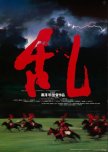
Această recenzie poate conține spoilere
"In a mad world, only the mad are sane"
One of the meanings for Ran in Japanese is "chaos". You know when you are about to watch a film by Kurosawa based on Shakespeare's "King Lear" you are going to experience a theatrical marvel, chaos, and a boat load of pain. Kurosawa used all of his skills to bring to life the story of a king driven mad by his traitorous children. At 75, his directorial skills were far from obsolete. He made a stunningly beautiful and heartbreaking tragic epic in a manner only he could do.Hidetora who had unified his region through fire and the sword and an utter lack of mercy announces that he is ready to retire. Taro, his eldest son, flatters him feigning humility when Hidetora bequeaths the title to him. He gives the two other sons, Jiro and Saburo their own castles, confident that his actions will bring lasting peace to the valley. Far from a sycophantic speech to his father, Saburo, the only son who loves him, tells him the plan will never work as does the court jester. Saburo and Hidetora's loyal retainer, Tango, are both banished for speaking the truth. It doesn't take long for Hidetora to realize his youngest son was right. Taro, at the bequest of his wife, Lady Kaede, humiliates his father by forcing him to sign a pledge of loyalty and into handing over the title Hidetora had sought to retain. Hidetora travels to Jiro's castle but finds no welcome from his middle son. Upon hearing the third castle is empty he and his entourage seek shelter there only to fall into a trap. Taro and Jiro join hands to destroy their father. After every last man and woman loyal to Hidetora is killed trying to protect their lord, Taro is "accidentally" killed, and his father is allowed to walk out of the burning keep, his mind completely broken. For all of the victories in his life, he could not see the evil his sons had harbored in their hearts and that evil would bring all he'd fought for and attained to naught.
***Warning! 417 year old spoiler ahead in the next paragraph!!!***
As Hidetora wanders aimlessly, his jester and Tango find him and care for him. Lady Kaede seduces Jiro and orders him to have his gentle wife, Sue, murdered. When Saburo comes to find his father, Lady Kaede incites Jiro to attack Saburo's men after agreeing to a truce. Saburo finds his disturbed father in a rocky "grave". Saburo's forgiveness clears Hidetora's mind and they dream of telling tales and living together. Jiro's man kills Saburo and Hidetora loses all hope and dies next to him. Like in King Lear, the family was extinguished. Saburo's men and allies triumphantly kill Jiro and his men laying waste to the last of Hidetora's family.
Much like King Lear, Ran ended with the tragic and inevitable loss of life based on a father's bloody past, pride, and blindness to the truth. Hidetora was haunted by all those he'd killed, including the families of his daughters-in-law. Unable to escape the ghosts of his cruel actions, Hidetora and his jester were forced to take refuge among the rubble of the keep he'd burned, at one time spending the night in the hut of a man he'd blinded. His jester ever speaking the truth and folly of his actions. There were no heroes in this film. Hidetora had blood on his hands. Jiro and Taro were murderous and duplicitous. Although Lady Kaede was widely hated, her vengeful actions, with the exception of her hatred of the Lady Sue, were understandable. Only Saburo who spoke the truth perhaps had a vision for a better tomorrow and he ended up paying for his father's sins.
At times, Kurosawa showed the chaos of battle in a beautiful manner with soldiers racing across fields and in castle keeps, silently except for the haunting music. Just as quickly the exquisitely orchestrated military dances devolved into the brutality of war with bodies filled with arrows, severed limbs, and crimson blood dripping ceilings. Fire and smoke choked out all sanity and peace. At one point, Hidetora wondered if he was in hell. He was in hell, a hell of his own making carved out by the carnage he had wrought during his life, the example his sons had learned from, pitting them against him and each other.
The opening scenery was gorgeous, vibrantly alive with verdant green hills. Kurosawa was truly a master of filling the screen with interesting movement and use of color. After the dye was set and the father gave his sons their inheritance, the windblown landscapes became dry and vast. As always, Kurosawa's fateful wind blew across the screen, tinged with either dust or smoke. Emi Wada won an Oscar for best costume design and it showed. The lifeless beige and gray backgrounds were the perfect contrast for her intricately and brilliantly hued costumes. The only detractor in this film for me was Nakadai's makeup. Much like the aging makeup on Mifune Toshiro in "I Want to Live", it was overly theatrical. The white and purple makeup obscured Nakadai's face and thus his unhinged performance.
Whether order was restored out of the familial chaos, is unknown. The film showed that confusion and disorder are always at the ready when truth is abandoned for what people pridefully want to hear. Children learn from what their parents do, not what they say, especially when their parent has been burning villages and castles to the ground in his desire to gain more. Hidetora made the classic mistake of thinking upon his retirement he had any say over what the next generation would do. Their desire for power was just as ravenous as his own had been-maybe more.
The message is timeless, whether in Shakespeare's day, Kurosawa's, or our own. As long as chaos bids us take what is not ours, view others as less than and disposable, we are bound to repeat the actions that bring sorrow instead of joy. The last character standing, blind atop a precipice, his painting of the Amida Buddha fallen and out of reach, reflected much of the mood of the film. The lust for power blinds men, their only hope for peace lost, ultimately leaving everything in ruins.
"It is the gods who weep. They see us killing each other over and over since time began…They can't save us from ourselves."
Ran was a gorgeous and enthralling film to watch and a cautionary tale as well.
6/28/23
Considerați utilă această recenzie?
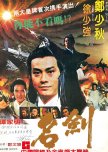
Această recenzie poate conține spoilere
What price honor and glory?
The Sword asks the question, "what price honor and glory?" It's something I always wonder when I watch these films where swordsmen try to move up the pecking order by defeating someone ranked higher than themselves and toss the word honor around while doing it. "Excuse me, I know we don't have any disagreements, but would you mind terribly battling me to the death to see which of us is the superior swordsman?" This procedure never seemed very polite, much less honorable. In this film, Adam Cheng was forced to weigh the costs of spending years hunting for a legendary swordsman simply to test his skills.Adam Cheng as Li Mak Yin befriends Ying Chih, a young swordswoman being hunted by a kidnapper, on the road to finding Hua/Wah, the legendary swordsman who has gone into hiding. Along the way he runs into his old flame who grew tired of waiting while he was on his quest and married Lin Wan (Norman Chu). Lin Wan turns out to be a vicious brute who wants Hua's sword Hon Sing. When Ying Chih is finally kidnapped Li goes to help her and is gifted the cursed sword Chi Mud to aid him by a woman who saved his life after a fierce battle with Lin's henchman. Turns out Ying Chih is Hua's daughter. In a very awkward moment after returning the man's daughter, Li asks if they could duel. After that interlude, the bodies start stacking up.
For a 1980 martial arts film, The Sword was slow, melancholic, and artfully done. Director Patrick Tam used beautiful framing and compositions combined with dramatic lighting. 1980's synth music was utilized for the soundtrack which actually worked quite well for setting the mood. The film asked how it felt to get what you wanted. Were the costs in innocent lives worth a lifetime of trying to beat and be the best? For the lone swordsman was the emptiness and loneliness of the lifestyle a satisfying tradeoff to feed one's pride and ambition?
The stunt work and fight choreography were acrobatic and quick. Despite being a more thoughtful movie, it did have gruesome ends to some of the fights. There were not only the traditional impalements, but one person decapitated himself and another was split in half. Chi Mud, much like The Ring of Power, was infused with hate and malice, and considered an evil sword. And just like the ring, it orchestrated the deadly destiny of several lives.
Adam Cheng played the conflicted and ambitious swordsman well. As Li weighed some of his exploitive actions, his life goals began to change. Norman Chu can be counted on to give depth to a villainous character and he did. Tien Feng, often cast as a baddie, was sympathetic as the aging considerate swordsman who cared for those around him. Jade Hsu found just the right balance as the firebrand daughter. She was forced to act idiotic for a scene but the writers finally put Ying Chih back on the right path. Eddy Ko, in a mostly silent role, made for a frightening henchman. Overall, the acting was quite good, especially for the genre.
The Sword was an excellent martial arts film for 1980 in comparison to so many others made during this time. The scenery, settings, and costumes were of a higher quality than most. For those looking for non-stop action, this might be a disappointment because it takes its time developing Li's character arc and the stakes being played for. The movie ends on a mournful note as Li moves beyond what he has been taught about honor and begins to understand that the real world has real consequences for his prideful actions. I would definitely recommend this film for fans of the genre. As always, I rate pre-1990 niche dramas on a curve.
6/27/23
*Many sites use a copy and pasted synopsis that says a swordsman and a samurai team up to find a blade. There is no samurai in this film, my guess is that it's either for a different movie or someone wrote a synopsis who had never seen this film.
Considerați utilă această recenzie?
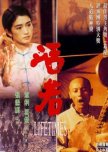
Această recenzie poate conține spoilere
"...and life will get better and better..."
To Live aka Lifetimes put Zhang Yi Mou and Gong Li in the penalty box for two years due to what was considered a critical view of some of the Chinese government's policies. The film followed a family from the Civil War in the 1940's into the Cultural Revolution. The little family chose to adapt and to do what was necessary to live as the volatile political climate changed around them.Xu Fu Gui (Ge You) was an inveterate gambler married to Jia Zhen (Gong Li) with a young daughter and a baby on the way. His gambling caused him to lose the family mansion and his wife. Fu Gui lived in dire poverty with his mother as he attempted to sell thread and needles on the street. Jia Zhen came back to him with his daughter, now a mute due to a fever, and a baby boy when she heard he'd stopped gambling. Gifted a box with an elaborate shadow puppet set by the same man who maneuvered him into his losses, Fu Gui created a traveling troupe and took his show on the road.
While on the road, Fu Gui and his friend Chun Sheng become conscripted into the Nationalist army where they pull canons and entertain the troops with their shadow puppet show. The Red army overruns the Nationalist army and they end up doing the same thing for the other side. Fu Gui is finally able to go home and he finds a very different environment. His wife and kids are selling and delivering drinking water. Nui, a local communist leader oversees their neighborhood. Long Er, the man who ended up with their mansion was executed for being a counterrevolutionary after burning the house when the government tried to confiscate it. Fu Gui declares it's good they are poor and that he'd lost their house or he would have been the one executed.
The 1950's arrive and during the Great Leap Forward everyone is required to "donate" all of the iron items they own leaving them without cooking utensils. As Nui states, "We're racing toward communism and you're worried about food?" You Qing, their son, fights back against his sister's bullies and the family is almost labeled saboteurs. The next morning, after very little sleep he and all of the other young school boys are required to smelt iron. His mother tries to keep him home but Fu Gui is afraid of the repercussions if the child doesn't go. Tragedy strikes and an old family friend is reminded that he owes them a life.
The 1960's bring the Cultural Revolution. Fu Gui is ordered to burn his shadow puppets or risk being declared a capitalist. The neighborhood and homes are covered in Mao propaganda and images. Their daughter Feng Xia is wed to a lame Red Guard leader at a factory. When the time comes for her to birth their child, her parents discover that all of the doctors and medical professors have been imprisoned for being reactionaries with only young student zealots left. Feng Xia's husband brings an imprisoned doctor to help, but he's starving and of no use.
Some of the family's own choices led to their suffering as in Fu Gui's disastrous gambling habit. But the political situations had more than their share of tragic effects on the family. The lack of sleep so many suffered from caused a death. Locking away doctors and intellectuals left people vulnerable to unskilled students. With only one party, corruption or paranoia could lead to innocent people being arrested as capitalists, especially when no dissenting opinions were allowed.
Fu Gui's shadow puppets became symbols for part of the story's theme. Initially, they were used only for entertainment with the artistic freedom to make the show lewd or comical. Later the puppets told more propagandistic stories. Eventually, Fu Gui was forced to burn them lest their feudal and subversive nature land him in prison. His family became part of the neighborhood theater instead. When Feng Xia married, the song sung, toasts given, pictures taken, and even the presents all revolved around Mao. They didn't even have the freedom to say, "thanks, that's just what we needed, another Mao statue/picture/mural/book" as they glance over at the table and walls filled with them. The family never complained as the political landscapes changed, they merely dressed the part and endeavored to recite the party lines whatever they were. Only at You Qing's grave did the family crack, removing their masks and let loose their true feelings toward the governmental perpetrator.
The performances were phenomenal. Ge You gave an outstanding performance as the complex Fu Gui. He won a Best Actor award at the Cannes Film Festival. The film also won the Grand Prix award. Gong Li's part was smaller as the wife and mother, but her performance was powerful and compelling. Her tears, dignity, and rage pulled me in and never seemed contrived.
To Live showed how people adapt and survive even in tumultuous and dangerous times. The family conformed and persevered clinging to each other in order to live. Once he kicked his gambling habit Fu Gui realized why he wanted to live---his family. "There's nothing like family." Despite tragedies, Jia Zhen only desired "…a quiet life together" and repeatedly and doggedly chose to live. Together they weathered the political changes that created financial and social upheavals in their lives, never letting hope completely die. As Fu Gui declared to his grandson, "life will get better and better" without any evidence that it would yet he still chose to live in expectancy. To Live used the political changes as a structure to show how people are able to endure and to live with dignity even when the world tumbles around them. Zhang Yi Mou made a beautiful film about the tenacity of the human spirit and one well worth trying.
6/9/23
Considerați utilă această recenzie?
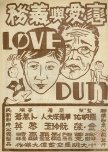
Această recenzie poate conține spoilere
"A mother who has no right to share the glory of her children"
Love and Duty featured another Ruan Ling Yu tragic character who suffered for making a wrong choice. Old films are not forgiving of women who stray so you know going into this story to buckle up and be prepared for a boat load of pain and at two-and-a-half hours, Ruan's character was on a sinking ship of misery.The film covered over two decades in the life of Yang Nei Fan (Ruan Ling Yu) starting when she was a school girl. She and a boy named Li Zu Yi (Jin Yan) begin to have feelings for each other, but before anything can get started her father declares she is to be married to a rich young man in a month. With no say in her own life, she is ignored when she begs her father to not force her to marry at such a young age. The marriage ends up being filled with awkward silences, though intimate enough they have two children. When her son falls into a pond and is rescued by Li the two are excitedly reunited. She invites him to meet her husband which he agrees to. While her husband, Huang Ta Jen, is out with his mistress the two begin to connect emotionally, all being witnessed by the troublesome servant Fox. They begin to spend more and more time together until Li gives her an ultimatum. Either she runs away with him or he kills himself. Because she doesn't have grounds for divorce, she would be abandoning her family illegally. When the time comes for her to leave, Li tells her she can't bring the children which she finds to be devastating.
The affair is covered in all the papers and though the lovers take on new identities it's not long before they are discovered and Li has trouble holding down a job. Meanwhile, Nei Fan becomes pregnant. Tragedy strikes leaving her in an even more precarious position. As time passes the younger generation fatefully becomes entwined leading Nei Fan to make a drastic decision.
Love and Duty was a film thought lost for many decades. A copy of it was discovered in Uruguay in the 1990's and was given to Taiwan and is currently stored at the Taiwan Film and Audiovisual Institute. The copy I watched had one, sometimes two running clocks on the screen as well as the TFAI stamp on the screen. The film is being shared not only for entertainment purposes but also for research and teaching purposes. There was no music accompanying the version I watched.
The performances were for the most part strong, but the acting style felt dated. There was more overacting than I've seen with quality silent films from this era. Ruan Ling Yu was a special actress who sadly took her life at the age of 24. She was quite young here but still conveyed a wide range of emotions first as an effervescent student and then a tired older woman. She also played her grown daughter with Huang.
With some older silent films, the tragic life of a female lead serves as an indictment on society's treatment of women. This story came across as a cautionary tale of what happens when a woman does not do her duty. The audience is repeatedly told that Nei Fan is unforgivable and a sinner with no path to redemption. She is only worthy of heartache, poverty, shame, and pain. "A mother who has no right to share the glory of her children." The film felt longer than 2 ½ hours and could have been trimmed without losing anything important. It was difficult to watch this woman being ostracized throughout much of the film for making a bad life choice. Her husband who spent much of his time with his mistress suffered no ill effects.
Despite it's unforgiving tone, Love and Duty was an interesting historical piece of entertainment and a peek into the troubling moral code of the day regarding women. Ruan Ling Yu didn't star in many films during her short life and many of those have been lost to time. Though not as strong as other films of hers I have seen it was a gift to be able to watch this talented actress in this rescued film.
5/24/23
Considerați utilă această recenzie?
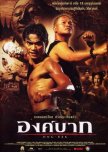
Tony is on fire!
Tony Jaa showed the world the fierce beauty that is Muay Thai in Ong Bak. It helps when watching this movie to recognize that Tony worked without wires, without CGI, and without stunt doubles. Fast, acrobatic, and incredibly limber he did moves that will leave your jaw gaping.Plot? The story scaffolding holding up the film was exceptionally thin. Tony's Ting goes to Bangkok after his village Buddha's head called Ong Bak is stolen by a drug dealer. He meets up with a cousin and his female friend/"sister"/girlfriend who spend their time gambling or fleecing gamblers. The Big Bad loses a ton of money on the fights in his fight club when Ting accidentally becomes involved in them and defeats all comers. Unlike his cousin, Ting doesn't fight for money or gamble, all he wants is the Ong Bak back.
From start to finish, whether it was the villagers racing to the top of a tree or Ting racing through Bangkok leaping over cars, sliding underneath a moving car or flying up a wall (no wires, remember) the action came fast and often. The fight scenes in the club were brutal. There were no holds barred and everything in the room could be used as a weapon. Ting was even hit with a refrigerator! At one point in a different setting, Ting continued to fight with his pants on fire! Most moments of glorious flight ended in an acrobatic dismount. Even the pickiest judge would have given him a 10 for form and style.
I pity the stuntmen who took the hits in this movie, because even with padding there were numerous hits and kicks that were going to leave a mark afterward. Some of the falls were Sammo Hung hitting the ground hard falls.
The director made use of slow-mo as well as showing impressive stunt scenes repeatedly from different angles just in case you missed something spectacular or your eyes refused to believe what they were seeing the first time. Tony trained for several years in Muay Boran, a predecessor to today's Muay Thai, for this movie. To say he was dedicated to his craft would be an understatement.
Grading this movie was tough. Story: C- Acting: C- Cinematography: C Fight scenes/fight choreography: A
Most people know going into a movie like this you aren't going to see great acting or be entertained with a compelling story. This is a pure smash mouth, elbow hitting, shin kicking, pants on fire, good time with one of the most energetic and acrobatically gifted fighters of his time. No wires, no CGI, no stunt doubles. No problem.
5/18/23
Considerați utilă această recenzie?
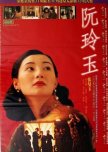
Această recenzie poate conține spoilere
"Gossip is a fearful thing"
When I watched Ruan Ling Yu in The Goddess I was mesmerized by her performance. It was honestly one of the best performances by an actress I had seen in a long time. Discovering that she had taken her own life at such a young age was crushing. Center Stage was a strange amalgam of documentary and movie about her captivating and tragic life.In one of her best performances, the ethereal Maggie Cheung played Ruan. During an interview she stated she could understand how Ruan must have felt finally going from secondary "wall flower" roles to having serious roles offered to her. Maggie had plenty of ditzy female characters on her resume before this film and afterwards would go on to star in such films as In the Mood for Love and Hero. In much the same way Ruan had suffered from gossip, Maggie also understood the vicious nature of gossip about actors' personal lives
The set-up of the film did not work for me. Ruan was a gifted actress with a sad, yet fascinating life. The back-and-forth between re-enactment and interviews and behind the scenes shots destroyed the rhythm of the story. It was very distracting when the film cut from a disturbing scene straight to an interview with a 90-year-old who knew Ruan. Some of the interviews and speculations did not line up with the timeframe of the story as it was laid out which could make the following scenes confusing. Due to the film's structure, I was always aware that people were acting and it destroyed my emotional connection to what was happening on screen. For me, it would have been far better if they'd shown the interviews after the film along with the behind-the-scenes shots. Having the director yell that he could see Maggie breathing and then show them reshooting the scene and then presenting what was supposed to be a sorrowful funeral felt emotionally false.
When the movie had longer stretches of showing Ruan's story instead of people telling us her story, it was much more meaningful. But just as the joyful or sorrowful moods would crescendo, there would be a startling halt and a cut to the documentary.
Ruan Ling Yu was a stunning actress who lived a tumultuous life, having had three different lovers who contributed to some if not most of her problems. Two of the men were married with multiple mistresses and her first love was an inveterate gambler and womanizer. They cost her dearly financially and personally. Because of the constant tonal shifts in the film there would be no catharsis for the viewer at the end as the gossipy papers and people wrought devastation on her life pushing her into a corner, she saw only one way out of. By the time of the funeral scene, it felt more like a sterile documentary with high-end re-enactments one might find on television.
What kept my attention was Maggie's performance and her insightful interviews. The film also had clips and images from Ruan's films no longer available. I found the business aspects of the film informative, more so when they let the characters show the business dealings instead of the documentary telling about them. There were so many sides of this complicated woman to explore which were not touched on, such as---Why did she always choose cruel, unavailable men? Much of the action took place when Japan had invaded Manchuria causing political and financial upheavals which were barely touched upon.
When Ruan starred in New Women, based on a real actress who had been hounded by the press and committed suicide, it exposed an unflattering and malodorous side of the press. Instead of self-reflection and changing of their ways or going after the men in the film or the studio, they turned on her and hunted her relentlessly, plastering what they wanted to about her private life in their rags. I felt the film let me down with explaining the ex-lover's story and how he was legally tied to her. Born a wealthy man, his family disapproved of Ruan, the reason he gave for not marrying her. He burned through his money gambling, then turned to Ruan to support him. When she tired of dealing with him, she broke it off. They had never been married and yet he sued her for support and later for adultery. The last lawsuit seemed to be the final straw for her along with the cruel gossip.
The film's stuttering style failed to affect me emotionally. Which is a shame because I have been quite curious about this talented woman. Ruan Ling Yu's life was more dramatic and heartbreaking than most of her films. Though Ruan had a couple of female friends, an adopted daughter, and at least one lover at any given time, she seemed utterly alone and vulnerable. She was no match against the power of the poisoned pen and wagging tongues in combination with her devious ex at the young age of 24 or 25, especially during a time of crisis for her country. Dying at the pinnacle of her career caused Ruan Ling Yu to become a screen legend. In her suicide note she wrote that she was not afraid of death. "My only fear is the malicious gossip." Nearly one hundred years later too many young entertainers are still dying because of malicious gossip. Gossip truly is a fearful thing.
5/9/23
Considerați utilă această recenzie?
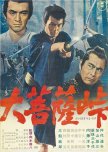
The Sword of Doom
4 oamenii au considerat această recenzie utilă
Această recenzie poate conține spoilere
"The sword is the soul...Evil mind, evil sword."
The Sword of Doom opens up a flood gate of ethical and individual responsibility discussions when a samurai with his own code ran afoul of just about everyone else in the movie. Upon close examination, many of the characters deriding Ryunosuke for being a cold-blooded murderer should more closely have examined their own actions. But in the end, with the question of "Am I the jerk?", Ryunosuke should have spent more time on self-reflection.Near the end of the Shogunate different groups were vying for power. Seemingly apart from the political upheavals, a grandfather and granddaughter climb a mountain where there is a Buddhist shrine. As the grandfather is praying for death, Ryunosuke appears and cuts him down. A thief racing by him down the path eludes him and later finds the granddaughter weeping.
Ryunosuke was scheduled to spar with Utsuki Bunnojo. Hama, Utsuki's wife, comes and begs for him to allow her husband to win to save his and the family's reputation and to keep the leadership of the Kogen school intact. Ryunosuke tells her, "A swordsman prizes his skills like a woman prizes her chastity." If she is willing to set aside her pride, he will, too. When her husband finds out she slept with his opponent he hands her a letter of divorce and seeks blood. "This is no match. It's a duel!" proclaims one onlooker. When Utsuki uses a deadly illegal move, Ryunosuke ends the match permanently. Utsuki's clan ambushes him on the way out of town and he slices his way to freedom. Having nowhere else to turn Hama follows him.
After a time, Ryunosuke takes the name Yoshida and joins a group of ronin who help to prop up the Shogunate by assassinating anyone considered an enemy. Bunnojo's brother Hyoma trains at Shimada's school run by Mifune Toshiro. He wants revenge on his brother's death but knows his skills are not nearly good enough to defeat the deadly ronin. Along the way he meets the granddaughter, Omatsu, training at a flower school. The thief with a heart of gold, Shichibei, has cared for her since they met on the mountain.
Yoshida's unshakeable confidence is shaken along the way. That's what happens when you see Mifune Toshiro in action! His vacant gaze falters and fear creeps into his dark eyes. It is one thing to be a ruthless killing machine when you know no one can defeat you, it's quite another when you discover someone with superior skills. Up to this point he might have been able to explain his actions, but he begins to commit murders that cross the line and the invisible guilt cuts into his heart. Eventually, he comes face to face with the consequences of one of his actions and he completely snaps with the guilt manifested visibly.
On the mountain was he simply answering the old man's prayer to die or was he just in the mood to cut someone in half? Though Ryunosuke's actions were despicable when he made the deal with Hama, for him it was a business deal based on his own unflinching code. Completely outside of a normal ethical perspective but perfectly acceptable to him. He would blame her for Bunnojo's death unable to see that his lack of compassion and political foresight set his downfall into motion. No matter how angry and hurt Bunnojo was, he behaved dishonorably during the match and paid the price. His clan was in the wrong for ambushing a single man. At least according to the code of samurai movies, men died in duels all the time. The band of assassins he'd joined also showed that there was no honor among them. A man's character was revealed in and through his sword. Only Shimada fought to remain honorable throughout the film even as he guided Hyoma. Surprisingly, the thief Shichibei showed more honor than many of the samurai. As time went along, Ryunosuke's mental health deteriorated. Never one to show emotion, maniacal grins began to creep onto his face. The ghosts of murders past cried out to him sending him over the blood-soaked edge.
Ryunosuke was not a character you could like or even admire. Nakadai Tatsuya's performance was compelling as Ryunosuke's sanity shattered sending him down a path of no return. The sword fight choreography was better than average for the time, bloodier than average as well. There were a lot of misses but given the number of opponents dancing about that could be forgiven.
The framing and filming of the shots was beautifully done in black and white. The music also fit the mood. At two hours, it could feel long at times, but overall was engaging.
The Sword of Doom was perfectly titled. The blade not only signaled doom to his opponents but to Ryunosuke as well. The film had a Shaw Brothers type ending with a freeze frame during the action. Was it a cliffhanger for further storytelling in a future movie? Many characters still had story left to live. Yet this was probably a perfect ending for the swordsman who had suffered his final break when karma came calling. Not a perfect movie, but an entertaining and action filled samurai film that asked a person to look into their own soul as well as another's for "The sword is the soul. Study the soul to know the sword. Evil mind, evil sword."
5/4/23
Considerați utilă această recenzie?
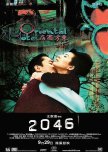
Această recenzie poate conține spoilere
"Love is a matter of time. It's no good meeting the right person too soon or too late"
2046 returned to the world Wong Kar Wai built in his 2000 film, In the Mood for Love. Tony Leung Chiu Wah reprised his role of Chow Mo Wan, this time as a broken man who numbed himself with casual sex and used the lives of the beautiful women in the hotel room next door, room 2046, as inspiration for his story of the same name.Chow, now alone after the events in the last film, earns his meager living writing racy stories. He had moved to Singapore and has little money for airfare home. The Black Spider (Gong Li) comes to his rescue and after spending time together he asks her to go to Hong Kong with him which she refuses. Back in Hong Kong he helps a very drunk woman home one night. In a moment of narrative synchronicity, he finds a room available next door, room 2047. He would have preferred 2046 but the woman he helped home was later stabbed by a jealous lover in that room and there was some redecorating to do. For those who didn't see In the Mood for Love, 2046 was the number of the room in another hotel where Chow and Su Lizhen (Maggie Cheung) worked on a martial arts story.
Aside from the revolving door to his bedroom, the lonely writer becomes involved with various women at different times and different ways in the hotel. The landlord's daughter, Jingwen (Faye Wong), is in love with a Japanese man, something her father cannot tolerate and will not approve of. Bai Ling (Zhang Zi Yi) moves in and she and Chow "borrow" each other to occupy their nights. Both have their share of paramours but become intimately if not romantically involved. Though she would like more, he keeps his emotional distance. As he writes his dystopian story of a train to 2046 where people search for their lost memories, the women's lives offer fodder for his creativity.
For me, this film would have been more difficult to understand if I hadn't watched In the Mood for Love prior to it. Understand might not be the right word, sympathize would work better. Chow didn't come across in a very favorable light as he slept his way through Hong Kong. Knowing what happened between him and Su Lizhen aided in feeling sympathy for his case of terminal heartache as guilt and grief guided his self-inflicted pain.
There were also many call backs to ITMFL. The green noodle thermos made an appearance several times. Many of the sets and lighting were similar, even more so when the rain set in. A taxi ride where he at least subliminally tried to recreate a moment with Lizhen with another woman gave a glimpse into his mind. And every Christmas he visited the diner as Nat King Cole's Christmas Song played in the background.
With three of the women, he found that he was using them as a substitutes, something that did not bring him comfort for very long. He was told the ending to the story he had written was too sad. How does one write a happy ending when your heart is hollowed out and beyond repair? When loss and longing are your constant companions? At best the women in his bed gave him a brief sense of warmth but he found himself lonely even in someone else's arms. Passion could not replace what he was searching for. His heart was waiting on the only one who could break his solitude and give him a happy ending and he had let her slip away.
This film was visually stunning. The color palette leaned heavily on green, yellow, and red in lighting, sets, costumes, and props. The costumer set the bar too high with Maggie Cheung's cheongsams in the previous film but there were some gorgeous dresses, particularly on Zhang Zi Yi. I was pleased that the soundtrack was more diversified for this film, fitting the despondent mood perfectly. Tony Leung, Zhang Zi Yi and the rest of the cast gave superb performances. The neon train moved beyond metaphor to personal therapy as Chow worked through his feelings writing about others. In style, this film succeeded brilliantly.
Where the film let me down were the characters. Though attractive and complicated the characters were challenging to care about. Remote and difficult to read, most of them kept their feelings to themselves. And those that did reach out were often reprimanded.
2046 was a deeply melancholic look at love and regret, bordering on cynicism. By the end of the film all of the color had been drained out of the spectrum, leaving only the cold, dark mood of despair. For Chow, love was pain and "all memories were traces of tears." This film could be just like Chow-beautiful to look at but also mystifying and emotionally detached and completely irresistible to walk away from.
5/3/23
Considerați utilă această recenzie?
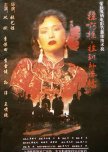
Această recenzie poate conține spoilere
"It's easy to cause a problem, but it's difficult to handle one"
Director Zhang Yi Mou and Gong Li explored the opulent and violent lifestyle of gangsters in the 1930's in Shanghai Triad. The film had many of Zhang's trademarks-lush cinematography, stylish sets and costumes, and moody lighting. He also made subtle criticisms of political power structures without directly criticizing the current regime.Gong Li was gorgeous, expertly styled with luxurious dresses and bold makeup and hair, far removed from her dressed down performances in other Zhang Yi Mou films like Ju Dou. She played Bijou, the old triad boss' mistress. She was the Queen of Shanghai and the queen of this film as well. Most scenes focused on her because the men and the camera could not stay far away from her charismatic aura.
Yet it is not through her eyes we view this story. A fourteen-year-old boy comes to Shanghai to work with his uncle who is one of Boss Tang's men. By virtue of being a Tang, Shuisheng is deemed worthy of being given a job. On his first day he witnesses a drug deal and a murder. His Uncle Lui assigns him to serve the temperamental and cold Bijou. Shuisheng is completely out of his element having never seen a lighter or phone before. The triad has many unwritten rules for behavior that he must learn fast.
Shuisheng rarely speaks yet through his expressive and innocent eyes we are witness to his fear, horror, and contempt for the people around him. Boss Tang believes that a woman's worst problem is not worth his time but a man's smallest one is. Bijou is as much a slave as Shuisheng, regardless of how well dressed and pampered she is.
By Shuisheng's fourth day in Shanghai he is already fleeing the city with the Boss and Bijou after an assassination attempt on the boss' life. They travel to a remote island and are served by a widow, Chihua, and her nine-year-old daughter, Ajiao. At first Bijou does nothing but whine about being bored. Soon she and Shuisheng settle in with the widow and Bijou reveals that she had once been a poor country bumpkin, too. Disturbingly, Boss Tang and his trusted cousin both see in Ajiao, a replacement for the aging Bijou.
Much like Curse of the Golden Flower, by day 7 there would be far fewer people boarding the boat home. Powerful men, regardless of their title or era, tend to be ruthless to those who have shown disloyalty or are no longer of any use. They don't share power or show mercy.
The film was nominated for an Academy Award for Best Cinematography. The cinematography was stunning and not even Zhang's best in my opinion. Shanghai was shown in bright garish light and colors. The island with regular people on it, unaware of the danger around them, were shown in soft muted colors and light. Only Bijou's vivid red lips and flashy clothes stood out in the gentle setting. Gentle setting until it wasn't.
Gangsters were not shown in a romantic way. They were shown as the violent criminals that they were. Bijou could be brash and unlikeable, a country bumpkin who had clawed her way into a more lavish lifestyle. Unfortunately, she was not cunning or lucky, both of which you needed to be to survive and move ahead in the vicious world she lived in. She still had a heart and a conscience which were not the necessary weapons needed to be a triad boss' moll. Shuisheng's innocence was irrevocably destroyed with his survival and soul hanging by a thread. As in other of Zhang's films, there was no fighting the one in power, it was a futile and fatal task.
Shanghai Triad was bleak and relentless, allowing only brief moments of sunshine through the darkness. With the exception of Shuisheng, who was a moldable ball of clay, there was no one to truly cheer for. Nearly every character had a menacing plan. I found the story gripping but also emotionally exhausting. Gong Li's sensual and intense performance was one of her most compelling and a persuasive reason to watch the film. As much as her performance glowed, the film's glimpse into the cruel criminal world though beautifully acted and filmed was about as appealing as the corpses left behind by Boss Tang. For me, this is a film worth watching but I would not have the heart to watch a second time.
5/2/23
Considerați utilă această recenzie?
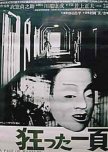
A Page of Madness
4 oamenii au considerat această recenzie utilă
Această recenzie poate conține spoilere
The sound of madness
A Page of Madness blurred the lines between sanity and insanity, fantasy and reality and wrapped it all up in a surreal box with a demented bow. A silent movie from 1926 with no intertitles, it could make trying to comprehend the mad hatter's box of discord challenging, yet with stellar performances and an absorbing experimental vibe it is worth making the effort.Director Kawabata was short on money but long on imagination. With the help of the actors who painted sets, took pay cuts, and slept on the floor he was able to finish the film. Due to only having 8 lights to work with, the walls were painted silver to reflect as much light as possible, which also gave the film an otherworldly appearance. Thought lost for nearly 50 years, Kawabata found a copy in 1971. He set new music to it and re-released it. The film is now shorter than the original. While I don't know what scenes are missing, the story seemed fairly complete. There has been debate whether originally a narrator guided the story for the audience or not. I have to admit I would have liked more clarity with the conversations between the father and daughter.
It does help to understand the framing for the story. A retired sailor is working at an asylum as a janitor because his wife is a patient there. When he was away, their child drown, sending his wife's mind down a slippery slope until she was sent to the asylum. It's unclear whether he stays close by due to a sense of loyalty, love, or guilt. Their surviving daughter is engaged to be married and comes to visit her mother. Afterwards the janitor determines to break his wife out of the facility. Whether the reason is he fears his daughter's in-laws would object to the marriage if they found out her mother had been committed or because he can't bear to see his wife behind bars is not spelled out.
The film begins with an elegant dancer on an elaborate stage with a giant spinning ball behind her. Momentarily we discover the stage and costume are all in her mind as she swirls faster and faster to the rhythms of a torrential rainstorm. Kawabata used nearly every camera trick available to him to display the chaotic spirit of the patients' troubled minds. Overlays, sped up frames, side-by-side, upside down shots, elongated faces, and twirling fades, nothing was left out of his bag of tricks. The actors took over where the director left off as they laid bare a wide range of disturbed emotions---vacant stares, mumbling, hysterical laughter, frenzied behavior, and angry outbursts. The combination of film skills and acting made for a fantastical experience as current behavior, memories, hallucinations, self-deception, dreams, and fantasies cut back and forth, eventually blurring the lines between time, reason and madness.
The janitor who was our guide began to show his own mental cracks leaving you wondering if he was real or one of the ghostly figures in the hall and garden. Or was his sanity slowly giving way to madness as well? The inmates appeared to share their delusions on occasion, begging the question…what is real? The patients seemed to see the dancer in her elaborate costume as she entertained them. The object of one of the janitor's violent fantasies bowed to him at the end of the movie as if he was indeed the man's son-in-law just as in the delusion. Objective and subjective views of reality crashed into each other and became inexorably tangled with each passing minute.
Watching the film, I had to wonder about mental institutions at the beginning of the 20th century. How much did isolation, boredom, low expectations, and no real therapy magnify the problems patients were experiencing? Human interactions were kept to a minimum. History shows that many people ended up institutionalized for being different or suffering from depression, postpartum issues, or in the case of women-being difficult.
Circles and round objects were utilized visually several times-the giant spinning ball in the dance sequence, the wife's focal point button, spinning tires, and spinning film frames. Like the twirling circles, sanity and insanity rapidly rotated until illusion and reality overlapped for the fragile yet resilient human psyche and spirit. When the wife refused to leave the security of her barred home, she showed that the mind can be a far more powerful prison than a physical cage.
Like the story itself, I found the film fascinating and infuriating, deceptively simple yet enigmatic. Built around strong performances and creative storytelling, Kawabata's strange experiment succeeded for me.
5/1/23
Considerați utilă această recenzie?

Această recenzie poate conține spoilere
"What does family taste like?"
Final Recipe was like a serving of Grandma's favorite dish. There was nothing unexpected, it was cozy, familiar, and comforting. No matter who in the family makes her recipe, it brings back memories and binds people through those flavors and stories.Final Recipe was a South Korean production with a multi-cultural cast, set in both Singapore and Shanghai. Henry Lau (Canadian fluent in Mandarin and Korean) as Mark, is a high school student in Singapore who dreams of becoming a chef. His grandfather, Chang Tseng (born in China, emigrated to Canada in 1994) refuses to let him enter the family restaurant business insisting that he go to college and become an engineer. Lori Tan Chinn (American) as Mrs. Wang plays referee between the two. When it's clear the restaurant will have to close, Mark decides to secretly take part in a famous cooking contest in Shanghai called Final Recipe to help his grandfather. Run by Michelle Yeoh's Julia (Malaysian) and her husband Master Chef David Chan (Ng Han Chin-Singapore), the contest is open to people from around the world. With the film's emphasis on family, it's no surprise that family secrets will bubble to the surface of this multi-generational stew.
Henry Lau was effervescent as Mark and a real bright spot in the movie as he dealt with his beloved grandfather and also when he sought unusual paths to making recipes work. Michelle Yeoh ended up being the bridge between generations, correcting mistakes made in the past. Mrs. Wang saw beyond the moment and dealt with the little family with humor and wisdom. Chin Han was more of the straight man in his role as the master chef as was Chang Tseng's stubborn grandfather. Both characters would have to deal with their decisions from the past. The team Mark worked with during the contest brought some nice conflict and comedy among the comrades in flames.
The story in this film was not particularly unique and had huge plot holes. What it did have was heart and warmth that poured out in every scene. The film showed how food and heritage can bind people even when distance has kept them apart. It also showed how families can become locked into rigid cycles. A parent wanting a child to follow in their footsteps or not wanting that for the younger generation, desperately desiring something better for them. Ultimately, the older generation had to realize that the children and grandchildren must choose their own paths which may take them on the road to be more successful or cause them to make mistakes as well. Though their paths may diverge, food and family are still intricately bound together.
Final Recipe's recipes were a true joy to visually experience. The delectable dishes bordered on food porn at times and were treats for the eyes. This is not a film to watch on an empty stomach, be sure to have a snack nearby.
I wish the story had been stronger, yet even with the plot flaws, the characters caused me to flow right along with them on their improbable journey. The healing and reconciliations while over-simplified still brought a smile to this viewer. In the end, Final Recipe was a charming and heartwarming film about family and the food that ties them together that left me gently satisfied.
4/19/23
Considerați utilă această recenzie?
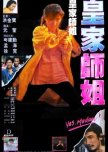
Această recenzie poate conține spoilere
"When will you become an honest crook?"
Yes, Madam! starring Michelle Yeoh and Cynthia Rothrock opened the door for the girls with guns genre. When they were fighting on screen they were a sheer joy to watch. Sadly, as often happens in a movie starring a woman, the majority of scenes focused on the bumbling male thieves and the Big Bad, leaving the women almost relegated to supporting roles.Two hapless hoods and their idiot forger friend get tangled up in triad boss James Tien's murderous methods for trying to retrieve microfilm a Scotland Yard detective had acquired of his illegal dealings. Dick Wei plays his vicious assassin who attempts to track down the damning evidence. Scotland Yard sends Cynthia to Hong Kong to join up with Michelle to investigate and discover who killed the British agent. The women are initially hostile with each other. Cynthia's methods are violent and she has a massive chip on her shoulder and hair-trigger temper compared to Michelle's calmer way of doing business and dealing with suspects. Before you can say Best Friends Forever, the two become battle buddies and it's on like Donkey Kong when they take on Hong Kong's worst.
Much of the film focuses on the bumbling crooks. Tsui Hark, Mang Hoi, and John Shum have their funny moments but they have more screen time and character development than the two leading ladies. James Tien and Dick Wei make for menacing enough, and in Tien's case, annoying enough criminals. Michelle Yeoh in her first starring role shone whenever she was given the chance. Cynthia Rothrock's fighting was much better than her acting but since that's when the women were together for the most part, it worked. As I've mentioned it would have given more dramatic depth to have the women be more than just fighting machines and learn more about them. Their characters were thinly drawn.
The script was uneven and the story in the middle of the film, felt repetitive and began to drag. How many times did we have to see Tsui Hark try to escape from bad guys in his rigged apartment? Or Hoi and Shum running afoul of baddies and getting beaten up and saved at the last minute? Some of the scenes were genuinely funny, but others began to wear thin.
What made this film memorable were the stunts. The opening scene's stunts were dynamic and breathtaking. The final fights at the Big Bad's mansion were brutally delicious. They were fast, creative, and dangerous. Michelle and Cynthia along with countless stuntmen hit the ground hard and some hit hard on architectural elements. Broken glass, broken furniture, broken bodies. The action took place with a bare minimum of wire work. This was all hard hitting, hard kicking, flipping, falling kung fu.
The women's clothes reflected the 1980's styles. They looked like a female version of Crockett and Tubbs from Miami Vice with their upturned colors and Flight of Seagulls' hairstyles. The music was bad 80's generic cop synth offerings. And the police brutality was showing its age as well. But all of this was to be expected from this era.
Given the title, Yes Madam, I would have liked to have seen this film through the eyes of Michelle Yeoh's character as she has to work with a strong willed foreigner and how they hunted down their suspects and developed a buddy camaraderie. Instead, most of the movie was shown through the criminal losers' perspective. As exciting as it was to watch the two women in action in those thrilling fights it didn't quite make up for them being largely window dressing in their own movie. And it didn't quite make up for the tedium of much of the movie when they weren't featured. I can appreciate the historical context of the film and how it gave women more interesting roles afterwards, but also see where they were afraid to completely leave it in their hands to carry the film. Michelle Yeoh is a favorite of mine and when given the chance she showed what star quality was, too bad they didn't let her shine more.
3/10/23
Considerați utilă această recenzie?
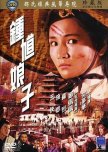
Această recenzie poate conține spoilere
"You live, I'll live. You die, I'll die."
The Lady Hermit is a rarity in the kung fu world. Its two main characters are both female fighters. In this movie, Cheng Pei Pei, much like she did in "Crouching Tiger, Hidden Dragon", has to train a headstrong younger female. And also a rarity, even though Lo Lieh was a good guy and training with the two women, it was the women who faced down the Big Bad in the finale instead of leaving it to a man to handle. The main character throughout is actually the one in the title.This is a dream casting for me. I loved the chemistry between Cheng Pei Pei and Lo Lieh in 1968's Golden Sparrow. They still had a good chemistry in this one. Leng Yu Shuang, aka The Lady Hermit, has been recuperating in hiding after nearly dying from the wounds inflicted by The Black Demon (Wang Hsieh) three years earlier. She and Chang Chun have a friendly relationship but he clearly wants something more from the maid at the escort service. Along comes a hot-headed martial artist with a whip, Cui Ping (Shih Szu) who's looking to make a name for herself and also wants the legendary Lady Hermit to train her. The Lady Hermit has to rescue Cui when she ends up surrounded by a sea of sword carrying bad guys. The Black Demon likely had to put a help wanted sign out after Leng finished with them. Cui's actions lead to Leng's whereabouts being known and the two women go on the run. Leng relents and trains Cui and later Chang when he shows up. When Cui sees a close moment between Leng and Chang she storms off in a jealous fit to take on the Black Demon herself. Fortunately for her, Leng and Chang follow her as there are enough baddies for everyone to take on, in the race to reach the Black Demon's lair and the evil martial artist with the ugliest of rodent fingernails.
The Lady Hermit took its time developing the relationships between the three main characters. And though it's said there was a love triangle Chang only had eyes for Leng. Cheng Pei Pei had an intense and graceful charisma as the noble warrior for justice. Her expressive face draws you into her story and makes you believe her. At the ripe old age of twenty-five, Pei Pei was near the end of her tenure with Shaw Brothers, Shih Szu at eighteen was just rising in the ranks. Shih's performance depended on a lot of pouting which could wear thin at times. Lo Lieh was striking in one of his good guy roles before being relegated to villains. It wasn't often he played the romantic lead and was able to utter lines like, "You live, I'll live. You die, I'll die." Wang Hsieh as the Big Bad had little to do until the end when he had to wag his nasty fingernails and battle his fierce feminine rivals.
Though most of the fights were sword-fights or with a whip, people died in a variety of gruesome ways. When Lady Hermit said she wanted an arm, a leg, and a head, she was being literal. Objects like plates and chopsticks became imbedded in people's heads. You'll think about bamboo skewers differently after watching this as well. For 1971, the fights were decently fluid and dynamic.
The sets were top quality for SB, both on the sound stage and outdoor sets. Some SB movies had what were obviously disposable sets suitable for throwing opponents through, these sets were more substantial. A rope bridge was a nice touch especially when you knew someone was going to cut it. The dummies falling into the river below though obvious added depth to the scene. If the falling dummies added depth, a tall temple that had to be climbed added height. Some costumes were better than others. No gold or silver lamé, but the upper tier minions wore badly ornate gold headbands.
The Lady Hermit took the time to develop the three main characters enough for you to care about them and though there was a love interest, it wasn't the focal point of this movie. Like her male counterparts, The Lady Hermit was a lone warrior who liked to be alone. If you are a fan of old martial arts films this is definitely one to try. I enjoyed this film, as much for the chemistry between the characters as for the fighting and in these old films that is almost as rare as a female warrior who is able to fight her own battles and doesn't die a bitter death at the end for breaking with tradition.
3/7/23
Considerați utilă această recenzie?

 54
54 191
191 11
11






















